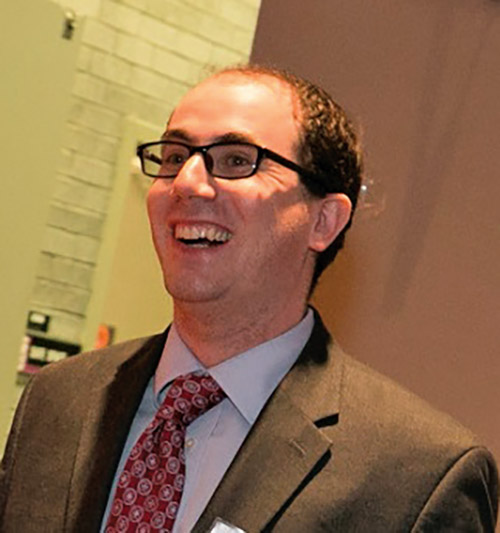
It’s not easy being green, sings Kermit the Frog, a character on the children’s show Sesame Street. Orthodox families are singing a slightly different version. It’s not easy earning green, with day school tuition on top of a mortgage and household expenses. Jeff Mendelson, director of Employment Services at Project Ezrah, suggests a potential solution: Become part of the gig economy.
On Sunday, December 2, Project Ezrah will present a program with Lavie Margolin, author and career development consultant, about how freelance project work can close the gap between what you have and what you need to make ends meet. In his presentation, “From Side Gig to Great: Achieving Sustainable Secondary Income,” Margolin will help participants examine their skills to find a fit with companies looking to hire people for “gigs,” and give advice on how to pursue opportunities. The program will be held at Young Israel of Teaneck, 868 Perry Lane, beginning at 9:15 a.m. Dash Photography will also be on hand to take headshots for LinkedIn.
Mendelson said he contacted Margolin to speak after getting an increase in calls from people wanting to supplement their income without making a drastic change to a new job that would take away too much time from their families. The internet’s ability to let people work remotely has opened up a new category of project work that can be done at times and places away from the daytime office. Startups and small companies that don’t have the need or resources to bring on someone full time can solve their staffing dilemma by hiring someone with the right skills on a project basis.
“People may not see themselves as entrepreneurs, but they have skills to enter lower-risk side ventures,” Margolin said in an interview with The Jewish Link. “You have to understand yourself well enough to determine how your skills and experiences best match the job market.”
Margolin will walk people through his story, which took him from an undergraduate degree in marketing, to a graduate degree in adult learning, to his current career as author, adjunct professor and consultant. Margolin became passionate about using LinkedIn as a resource, advising people why they should join. He reached out to the website, becoming a LinkedIn ambassador and a consultant for the company. “I proved myself and grew,” Margolin said. “It helped my family and I return to the lifestyle we had before children.”
Jacob Kramer of Teaneck works full-time in budgeting and finance in Manhattan. He also earns extra income in the gig economy. Kramer began through an unusual path: He began working for his former boss. Kramer had been working at the company and knew he needed more than the company could offer. He took a new job but proposed to his former boss that he could do project work for less money than when he was on salary. “I went through my job description and said I can do this on a project basis for a fraction of what you’re paying me now,” Kramer recalled. Since then he has gotten additional work through referrals and word of mouth. With careful structuring, he has a balanced life. “I try not to take on more than I can do,” he said. “If I need additional time, I use a vacation day from my full-time job. I limit my work to evenings and weekends. I only work with companies that don’t need me during weekday hours.
Kramer said he had to initially set a fee that was lower than what he thought his time was worth to induce people to take the risk on working with him. “I told people I was giving them a discounted rate to start,” he said. While some were hesitant, when he later wanted to raise his fees, he found they were willing to negotiate.
Joining the gig economy is a viable option in a range of fields—professional and business services, writing, design, education, health, finance and technology. But getting a gig doesn’t necessarily require advanced technical skills. “Everyone has unique experiences and understanding they can leverage,” said Margolin. “There will always be more qualified people graduating with new technical skills.”
Margolin said finding opportunities in the gig economy requires an openness to non-traditional approaches. “It’s you attracting business to you,” he said. “Build momentum and deliver services that are of such value that you receive recognition from others and your name begins to spread.”
To register for the seminar, RSVP Saturday night to: https://tinyurl.com/PE-GIG-Economy. For questions, contact Jeff Mendelson: jeff@ezrah.org.
By Bracha Schwartz










